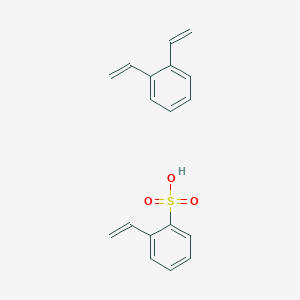-
Categories
-
Pharmaceutical Intermediates
-
Active Pharmaceutical Ingredients
-
Food Additives
- Industrial Coatings
- Agrochemicals
- Dyes and Pigments
- Surfactant
- Flavors and Fragrances
- Chemical Reagents
- Catalyst and Auxiliary
- Natural Products
- Inorganic Chemistry
-
Organic Chemistry
-
Biochemical Engineering
- Analytical Chemistry
-
Cosmetic Ingredient
- Water Treatment Chemical
-
Pharmaceutical Intermediates
Promotion
ECHEMI Mall
Wholesale
Weekly Price
Exhibition
News
-
Trade Service
The chemical industry is a vital sector of the global economy, producing a wide range of products that are used in various industries, including agriculture, construction, healthcare, and manufacturing.
One of the key challenges facing the chemical industry is the need to ensure the safe and efficient operation of chemical processes.
This is where the Instruction of MMAF (Mixed Metal Alkali Fusion) comes in.
MMAF is a welding process that uses a mixture of metal alkalis to produce high-quality, ductile welds.
The process involves melting two or more metal parts together and then adding an appropriate amount of an alkali metal, such as sodium or lithium, to the melt.
This creates a homogeneous mixture of the metal and the alkali, which is then used to weld the parts together.
The benefits of using MMAF in the chemical industry are numerous.
For one, it produces high-quality welds that are strong and ductile, meaning they can withstand the demands of chemical processing.
Additionally, the process can be used to weld a wide range of metals, including aluminum, copper, and stainless steel, making it a versatile option for various applications.
Another key benefit of MMAF is that it can be used in areas where traditional welding processes may not be effective.
For example, the process can be used to weld dissimilar metals, such as aluminum to steel, without the need for additional cladding or plating.
This can save time and money compared to other welding methods.
MMAF can also be used to weld large, complex structures, such as heat exchangers, with minimal distortion.
This is because the process produces low-heat input welds, which minimizes the amount of heat transferred to the surrounding material.
This reduces the likelihood of distortion and cracking, making it an ideal option for welding critical components in the chemical industry.
In addition to the benefits mentioned above, MMAF is also known for its speed and efficiency.
The process can be completed in a matter of minutes, depending on the size and complexity of the components being welded.
This means that production times can be significantly reduced, resulting in cost savings and improved productivity for chemical companies.
When it comes to safety, MMAF is also a preferred option in the chemical industry.
The process does not produce any hazardous fumes or gases, making it a safe option for use in enclosed spaces.
Additionally, the low-heat input nature of the process minimizes the risk of fire or explosion, further enhancing its safety profile.
In conclusion, MMAF is a vital process in the chemical industry, offering a range of benefits that include high-quality, ductile welds, versatility, the ability to weld dissimilar metals, minimal distortion, speed and efficiency, and improved safety.
As the demand for chemical products continues to grow, the use of MMAF is expected to increase, making it an essential tool for chemical companies looking to improve their operations and produce safe, high-quality products.
It is essential for chemical companies to invest in the latest welding technologies, including MMAF, to ensure that their products meet the highest standards of quality and safety.
With the right investment in technology and training, chemical companies can streamline their operations, reduce costs, and improve their overall competitiveness in the global marketplace.







